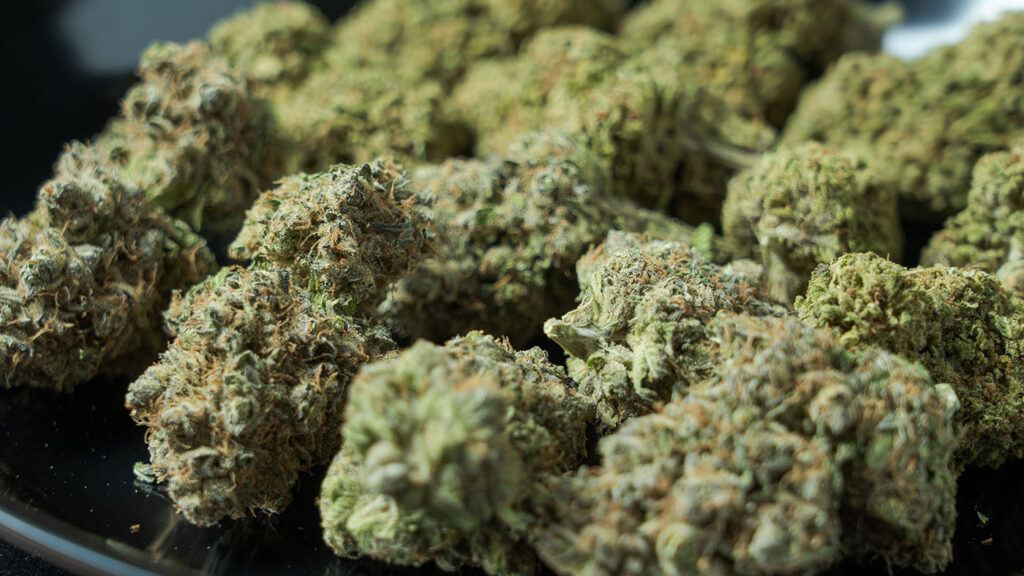Estimated reading time: 6 minutes
Table of contents

Introduction
Hawaii remains the oldest medical-only cannabis market in the nation—a status largely maintained by House lawmakers who continue to block efforts toward adult-use legalization. Despite ongoing proposals and some support from the upper chamber, legislative obstacles have kept Hawaii from joining the growing list of states that offer comprehensive cannabis reform.
Legislative Challenges
Efforts to legalize adult-use cannabis in Hawaii have faced significant setbacks. House Bill 1246, which aimed to legalize cannabis for those 21 and older and establish a commercial marketplace, met defeat on February 6. During a House floor session, Rep. Chris Todd, D-Hilo, introduced a motion to recommit the legislation for consideration in a future session. “On this particular bill, it became clear that we did not have enough support to pass the measure in this session,” Todd explained to Honolulu’s Civil Beat following the voice vote that postponed the bill until 2026.
Current Proposals and Progress
While the defeat of House Bill 1246 dealt a setback to adult-use legalization, hopes for reform are not entirely extinguished. In the upper chamber, Senate Bill 1613 serves as a companion measure with the potential to advance the cause. The bill received approval from the Health and Human Services Committee and the Judiciary Committee on February 13. However, its future remains uncertain. After referral to the Senate Committee on Ways and Means and the Committee on Commerce and Consumer Protection, the measure was unexpectedly removed from the decision-making schedule just two days before a public hearing was set to take place on February 26.
Adding to the legislative complexity, the Hawaii Senate passed an adult-use legalization bill for the second consecutive year on a 19-6 vote in March 2024. Yet, last year’s effort was ultimately stymied by the Hawaii House Finance Committee when it refused to hold a hearing. Committee Chair Kyle T. Yamashita, D-Keahua, described the issue as “deeply divisive,” underscoring the challenges that persist in achieving consensus on cannabis reform.
Public Opinion and the Future of Cannabis Reform
Despite these legislative hurdles, public sentiment in Hawaii favors adult-use cannabis legalization. According to a late 2023 Hawai’i Perspectives poll conducted by Pacific Resource Partnership, 58% of the state’s adults support reform. This growing support among voters highlights a disconnect between legislative action and the will of the people. Currently, Hawaii stands as the only state with a Democratic government trifecta that has yet to implement an adult-use cannabis program—a notable contrast given that Hawaii was the first state to legalize medical cannabis through the legislative process back in 2000.
Conclusion
As Hawaii approaches future legislative sessions, the path to adult-use cannabis legalization remains uncertain but not entirely closed. While House lawmakers continue to impede progress, companion efforts in the Senate and robust public support signal that reform may eventually gain traction. The coming years will be crucial in determining whether Hawaii can overcome its legislative roadblocks and transition from a historic medical-only market to a fully integrated adult-use cannabis program.
Cannabis Legalization Hawaii 2025 FAQs
In-State & Out of State Registered patients and caregivers are prohibited from acquiring, possessing, cultivating, using, distributing or transporting cannabis or paraphernalia in ALL public places. This includes (but not limited to): Public Parks and Beaches.
While Hawaii was one of the most progressive states in the nation on cannabis reform when it became the first state to legalize medical cannabis via legislative action in 2000, it now represents the oldest medical-only market in the nation.
Yes, because recreational cannabis has not yet been legalized in Hawaii, you must have a valid medical marijuana card to purchase cannabis products. If you are a caregiver, you can also purchase medical cannabis on behalf of your patient.
Possession of more than three grams but less than one ounce of marijuana is a petty misdemeanor punishable by up to 30 days imprisonment and/or a fine of $1,000. Possession of one ounce or more but less than one pound is a misdemeanor punishable by up to one year imprisonment and/or a $2,000 fine.
Pakalolo is the Hawaiian word for cannabis and it literally means “numbing tobacco.” The chronicled use of cannabis in the Hawaiian Islands, appearing in the Hawaiian Language Newspaper Ka Nonanona, goes as far back as the year 1842 – though cannabis use probably goes back much further.
Getting a Hawaii 329 card is relatively easy, provided you meet these requirements: You’ve been certified for medicinal cannabis by a licensed medical marijuana doctor, which proves that you have one of the qualifying conditions for a medical card.
The Hawaii HIDTA region is one of the most significant cannabis cultivation and marijuana production areas in the nation.
The Hawaiian state government has taken greater lengths, however, to restrict the sale of CBD products than, perhaps, any other state. It’s legal to own and use any type of CBD product in Hawaii as long as it contains less than 0.3% THC — that much is clearly protected under federal law.
A certifying APRN must be a Hawaii-licensed Advanced Practice Registered Nurse with prescriptive authority and who is registered with the Department of Public Safety to prescribe controlled substances.
Additional Resources
Free eBooks For Cannabis Business Success
Latest Articles
- Missouri Cannabis Licensing & Business Opportunities 2026Missouri has established itself as the premier success story for cannabis in the Midwest, evolving from a standard medical regime to a high-volume adult-use market that exceeded $1.52 billion in annual sales in 2025. As the market enters the 2026–2027 biennium, the landscape is shifting from rapid expansion toward operational maturation and specialized entry.
- North Carolina Cannabis Licensing & Business Opportunities 2026North Carolina remains one of the final significant jurisdictions in the United States without a comprehensive medical or adult-use cannabis program. However, the 2026–2027 biennium is projected to be the most consequential period in the state’s cannabis history. Driven by the formation of the North Carolina Advisory Council on Cannabis and an impending federal “hemp cliff,” the state is moving from a period of passive prohibition toward a structured, albeit highly restrictive, regulatory framework.
- Nebraska Cannabis Licensing & Business Opportunities 2026Nebraska is entering the 2026–2027 biennium at a historic crossroads. Following the 71% voter approval of Initiatives 437 and 438 in late 2024—the largest margin for a medical cannabis initiative in U.S. history—the state is currently standing up its first regulated medical infrastructure.
- Florida Cannabis Licensing & Business Opportunities 2026Florida represents the most capital-intensive and professionally structured cannabis market in the nation. As of 2026, the state is at a crossroads: it is both expanding its mature medical program and preparing for a potential constitutional shift toward universal adult-use access. On November 3, 2026, Florida voters will decide on the Marijuana Legalization Initiative (Amendment 3). Passing this requires a 60% supermajority—a high threshold, but one that polls suggest is within reach.
- Virginia Cannabis Licensing & Business Opportunities 2026As Virginia transitions from its current “possession-only” model toward a fully regulated retail market, the 2026–2027 biennium represents a once-in-a-generation window for market entry. Unlike the vertically integrated “medical-only” regimes of the past, Virginia’s upcoming framework focuses on decentralization, specifically architected to favor small Virginia-based operators over large multi-state corporations.
- Minnesota Cannabis Licensing & Business Opportunities 2026Minnesota is currently undergoing a transformative shift in its cannabis landscape, moving from a semi-regulated hemp-derived market toward a fully comprehensive adult-use framework. Overseen by the Office of Cannabis Management (OCM), the 2026–2027 biennium represents the critical “enforcement phase” where temporary registrations sunset and permanent, merit-based licenses define the market’s long-term leaders.











